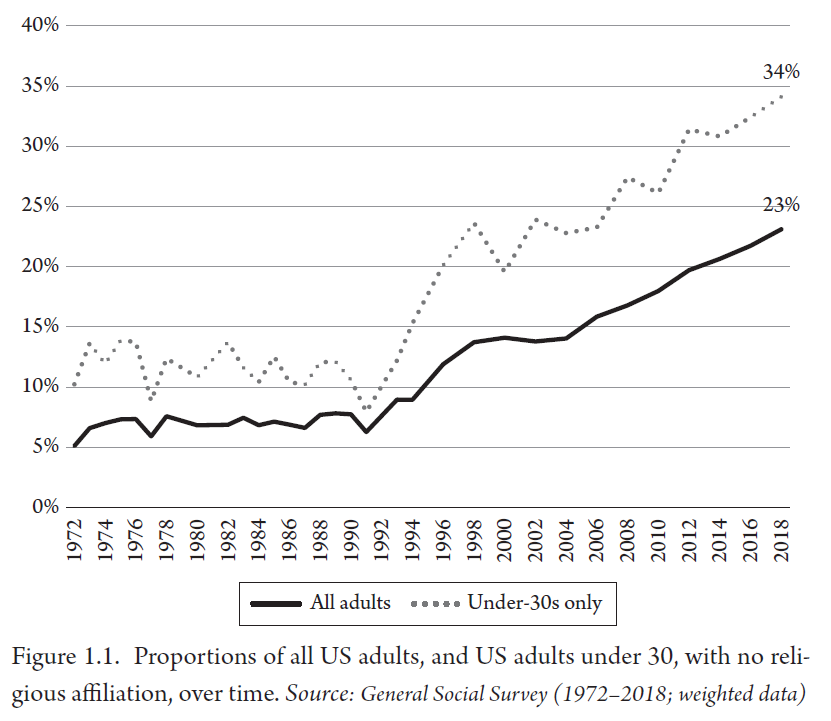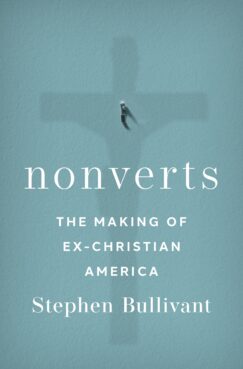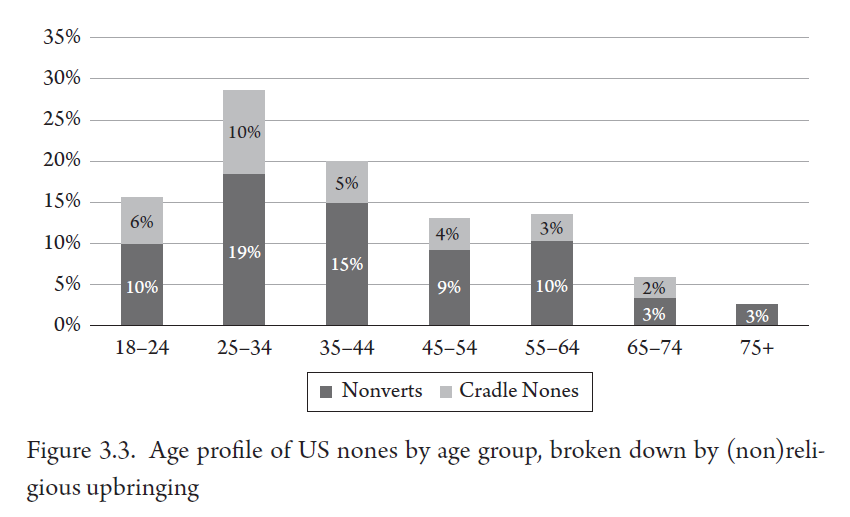(RNS) — As a lot of as a 3rd of Individuals now declare no religious affiliation, and British sociologist Stephen Bullivant has some suggestions about why.
In his new guide, “Nonverts: The Making of Ex-Christian The united states,” thanks this week from Oxford University Press, Bullivant reflects in normally highly entertaining manner about the pattern lines. Although it is complete of statistics, “Nonverts” continues to be a lively read for standard persons — a uncommon feat in a sea of dry facts-driven books.
As a researcher, Bullivant desired to know why Us citizens, after deemed the exception to the secularization that has occurred in Europe and in other places, are quickly dropping their faith.
And it is unexpected, he notes. “This type of spiritual change in a society does not normally happen in the room of 20 or 30 years,” he instructed Religion Information Services in a Zoom interview. “It’s been inside the place of 1 or maybe two generations that we’ve seen a unexpected surge.”
In the 1990s, nonreligion started climbing from its baseline of about 7{b56f7a0c6479bc075d08fb7619591a4c4023144d1b4aceb7f3fe2776303deb2f} of the inhabitants to what is involving three and 5 periods that figure now, depending on the study. (All national surveys display the identical mounting trendline, but they vary as to the diploma.)

From “Nonverts: The Building of Ex-Christian America” by Stephen Bullivant
Bullivant states the the vast majority of this change is brought about by men and women actively leaving the faith of their childhood (the “nonverts” of the title), not because they were being born into nonreligious people (nevertheless that pattern is coming).
“So there is a tale about why there is this increase of the nones. But to me, the more exciting story is why it didn’t take place earlier.” Why did this transform get started not in the 1960s, when American culture was in a condition of upheaval, but in the ’90s?
Politics, say other students, who see nonreligion as a backlash against the GOP’s “Contract with America” and the rise of the spiritual appropriate. That is most likely part of it, Bullivant explained, pointing to how promptly the American public transformed its brain on gay relationship. But he appears to be to 3 other developments to support us have an understanding of why individuals are leaving the fold.

“Nonverts: The Producing of Ex-Christian America” by Stephen Bullivant. Courtesy graphic
First, there was the conclusion of the Chilly War. For a long time, “there was a significant risk of ‘godless communism,’” making it hard for any individual with religious doubts to confess to them publicly. The social charge of remaining deemed un-American was just also substantial, holding the numbers of religious nones artificially reduced.
“Then abruptly the Cold War finishes, and you have people able to confess to staying nonreligious. In truth, by the time the New Atheists increase up in the mid-2000s, it’s no longer people today with no faith who are the existential threat, but people today with way too a lot faith, primarily extremist religion. The New Atheism is really attention-grabbing in how it positions by itself as patriotic.”
A next issue is the unexpected overall look of the web, which made it feasible for like-minded men and women to fulfill each individual other. “If you had been introduced up in smaller-city Kansas, you likely weren’t likely to find other persons who ended up obtaining religious doubts. The world wide web opened up those people areas for people today to engage in close to with suggestions, cling out with other individuals, and get seriously deep into different subcultures.”
The online has been notably important for folks leaving conservative religions this sort of as evangelical Protestantism or Mormonism. The Church of Jesus Christ of Latter-working day Saints is essentially the initial principal case in point Bullivant employs in the e-book, which is shocking mainly because it is these kinds of a tiny percentage of the populace, all around 1.5{b56f7a0c6479bc075d08fb7619591a4c4023144d1b4aceb7f3fe2776303deb2f}.
Bullivant chose it mainly because it’s a “canary in the coal mine” tale — if even the Mormons are setting up to bleed associates, “that reveals what a big challenge this is for everybody else.” The erosion of Mormon attachment, he mentioned, implies “the breakdown of spiritual subcultures,” which has been specifically profound in locations such as Utah and southern Idaho exactly where, in a long time previous, a person’s entire social and religious lifetime could be used about associates of the LDS church.
The internet chips away at that enclave. “This was critical for several of the Mormons I interviewed, who were being encountering new points about Mormon record on the net. But even far more than this, they are setting up to dangle out with non-Mormons and ex-Mormons, people today who are really considerably in your boat, and that results in being this other globe you can inhabit.”

Around two-thirds of all nones in the U.S. are “nonverts” (dark gray), that means that they remaining a faith, fairly than “cradle nones” (light grey), who were lifted with no faith. About time, Bullivant expects cradle nones to turn into a larger share of the none population, as far more Individuals are born without having a faith and don’t change into one.
The third variable appears like circular logic: The nones are mounting since the nones are mounting. But human beings are herd creatures, Bullivant points out in the e book we are likely to do what our neighbors are undertaking. With just about every headline (like the a person higher than) that heralds the seismic shift the country is experiencing, a lot more folks become at ease currently being nonreligious.
Bullivant himself bucks the trend. The 38-yr-old researcher arrived from a relatives with no faith — “I was not baptized, and that’s ordinary in Britain” — but deviated from that path by gradually coming to Catholicism as a pupil. He was executing the initial of his two doctoral degrees (a single in theology, the other in sociology) when he became close friends with some Dominicans who would frequently invite him for supper.
“In order to appear to this visitor meal with loads of wine on a Sunday night, you had to have absent to the Mass beforehand,” he said.
So he started attending Mass. He was impressed by the men and women he satisfied, who have been shiny and variety. It was clear that they lived what they believed and had manufactured excellent sacrifices in purchase to turn out to be clergymen. Inevitably, a person of those good friends made available to baptize him. So right after a 3-7 days investigation journey to Rome for his dissertation, Bullivant formally joined the Catholic Church. His spouse is now also a member, and they are elevating their four kids as Catholics.
“So it’s unusual: I do a lot of perform on individuals leaving Catholicism. For each individual person in Britain who is elevated nonreligious who will become Christian, there is some thing like 26 men and women who go the other way.”
It is a valuable reminder that though social science charts traits that are sweeping and incredibly genuine, each and every person story is sophisticated.
Relevant articles:
“Allergic to religion”: Conservative politics can drive people today out of the pews, research demonstrates
For US Mormons, religiosity has declined over time
